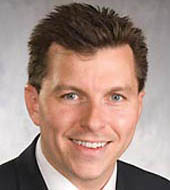Summary
Definição
História e exame físico
Principais fatores diagnósticos
- history of psychiatric comorbidity
- positive family history of social anxiety
- anticipatory anxiety and worry
- tachycardia
- hyperventilation
- sweating
- flushing
- muscle tension
Outros fatores diagnósticos
- post-event processing
- attentional biases
- social skills deficits
- crying, tantrums, or "freezing"
- selective mutism
Fatores de risco
- psychiatric comorbidity (e.g., anxiety, mood, and substance-use disorders)
- genetic
- temperamental factors
- parenting style
- psychological disorder
- life stressors
- environmental factors
Investigações diagnósticas
Primeiras investigações a serem solicitadas
- clinical diagnosis
Investigações a serem consideradas
- blood glucose
- serum thyroid-stimulating hormone
- toxicology screen (urine and blood)
Algoritmo de tratamento
adults: no comorbidity
adults: comorbidities
children and adolescents
Colaboradores
Autores
Craig N. Sawchuk, PhD

Professor
Department of Psychiatry and Psychology
Mayo Clinic
Rochester
MN
Declarações
CNS declares that he has no competing interests.
Jason P. Veitengruber, MD

Associate Professor
Department of Psychiatry and Behavioral Sciences
University of Washington School of Medicine
Seattle
WA
Declarações
JPV is an author of a reference cited in this topic.
Bunmi O. Olatunji, PhD

Professor
Department of Psychological Sciences
Vanderbilt University
Nashville
TN
Declarações
BOO declares that he has no competing interests.
Stacy Shaw Welch, PhD

Director
Anxiety and Stress Reduction Center of Seattle
University of Washington
Seattle
WA
Declarações
SSW declares that she has no competing interests.
Revisores
Stefan G. Hofmann, PhD
Alexander von Humboldt Professor
Department of Psychology
Philipps University Marburg
Germany
Declarações
SGH is an author of a number of references cited in this topic.
Fallon R. Goodman, PhD
Assistant Professor of Psychology
George Washington University
Washington
DC
Declarações
FRG declares that she has no competing interests.
Richard P. Swinson, MD, FRCPC, FRCPsych
Emeritus Professor
Medical Director
Anxiety Treatment and Research Centre
McMaster University and St Joseph’s Hospital
Hamilton
Canada
Declarações
RPS declares that he has no competing interests.
David Baldwin, MD
Professor of Psychiatry
University of Southampton
Southampton
UK
Declarações
DB has acted as a consultant for and held research grants from Cephalon, Eli Lilly, GSK, Lundbeck, Organon, Pfizer, Pharmacia, Roche, and Wyeth and has also acted as a consultant to Asahi, AstraZeneca, Grunenthal, Pierre Fabre, Servier, Sumitomo, and Wyeth. He has accepted paid speaking engagements in industry-supported satellite symposia and is co-author of the BAP evidence-based guidelines on the treatment of anxiety disorders. He is also a Medical Patron of Anxiety UK.
Créditos aos pareceristas
Os tópicos do BMJ Best Practice são constantemente atualizados, seguindo os desenvolvimentos das evidências e das diretrizes. Os pareceristas aqui listados revisaram o conteúdo pelo menos uma vez durante a história do tópico.
Declarações
As afiliações e declarações dos pareceristas referem--se ao momento da revisão.
Referências
Principais artigos
American Psychiatric Association. Diagnostic and statistical manual of mental disorders, 5th ed., text revision (DSM-5-TR). Washington, DC: American Psychiatric Publishing; 2022.
National Institute for Health and Care Excellence. Social anxiety disorder: recognition, assessment and treatment. May 2013 [internet publication].Texto completo
Katzman MA, Bleau P, Blier P, et al; Canadian Anxiety Guidelines Initiative Group on behalf of the Anxiety Disorders Association of Canada/Association Canadienne des troubles anxieux and McGill University. Canadian clinical practice guidelines for the management of anxiety, posttraumatic stress and obsessive-compulsive disorders. BMC Psychiatry. 2014;14(suppl 1):S1.Texto completo Resumo
Williams T, Hattingh CJ, Kariuki CM, et al. Pharmacotherapy for social anxiety disorder (SAnD). Cochrane Database Sys Rev. 2017 Oct 19;(10):CD001206.Texto completo Resumo
Schaffer A, McIntosh D, Goldstein BI, et al. The CANMAT task force recommendations for the management of patients with mood disorders and comorbid anxiety disorders. Ann Clin Psychiatry. 2012 Feb;24(1):6-22. Resumo
Artigos de referência
Uma lista completa das fontes referenciadas neste tópico está disponível para os usuários com acesso total ao BMJ Best Practice.
Diagnósticos diferenciais
- Phobias
- Panic disorder
- Agoraphobia
Mais Diagnósticos diferenciaisGuidelines
- Anxiety and depression in children and youth: diagnosis and treatment
- WFSBP guidelines for the pharmacological treatment of anxiety, obsessive-compulsive and posttraumatic stress disorders- version 3. part I: anxiety disorders
Mais DiretrizesPatient information
Anxiety
Panic attacks
More Patient informationLog in or subscribe to access all of BMJ Best Practice
Use of this content is subject to our disclaimer